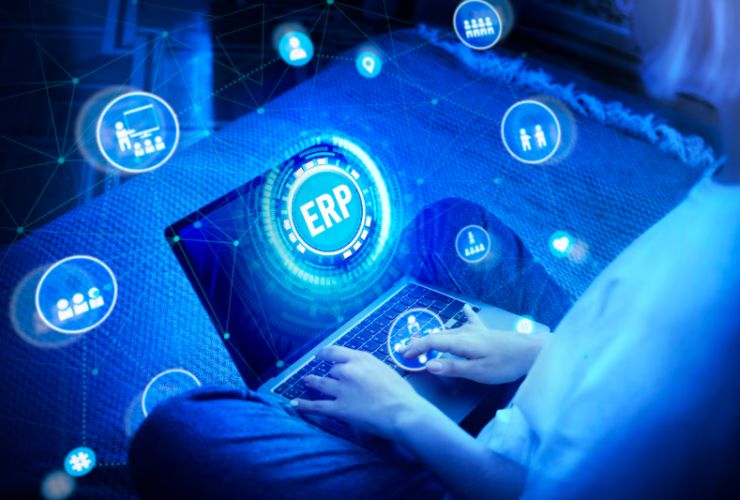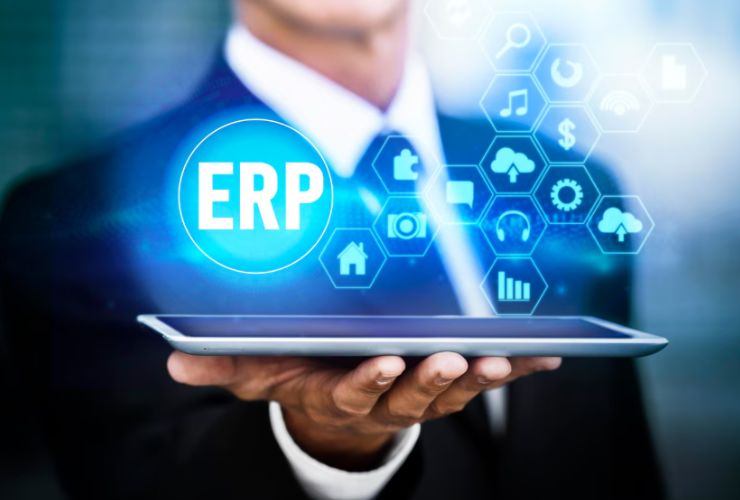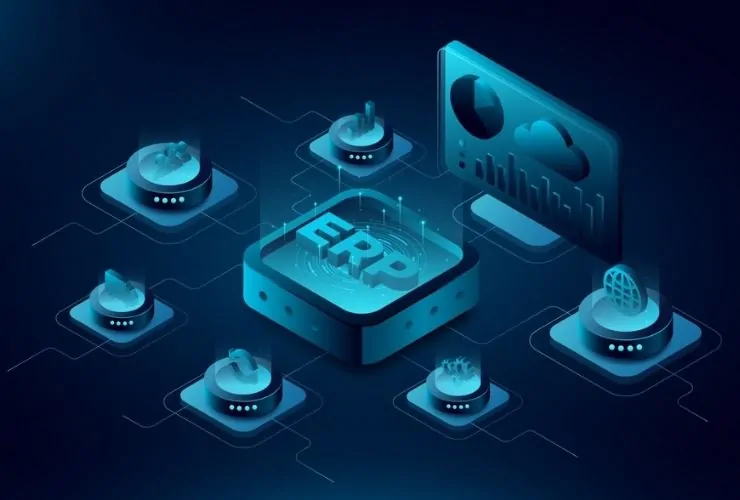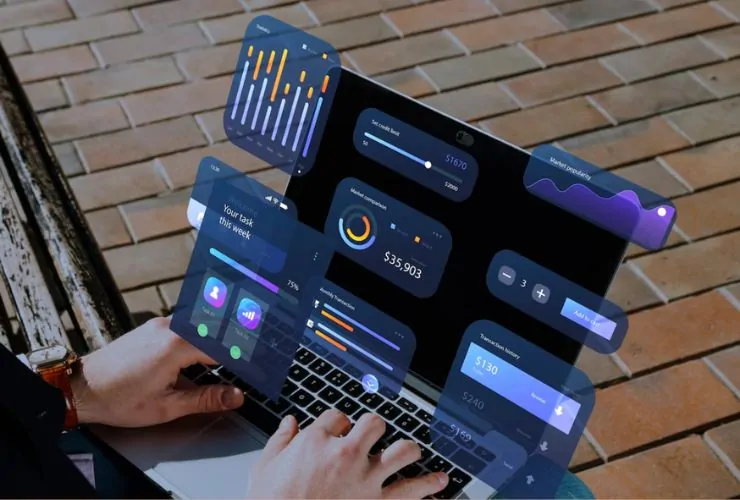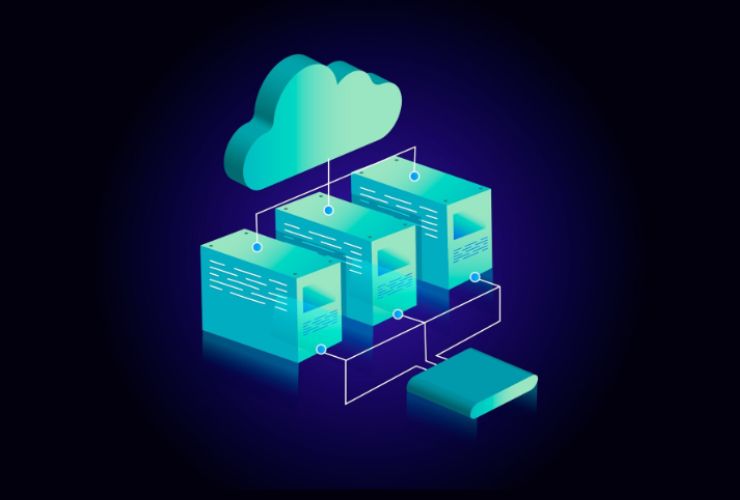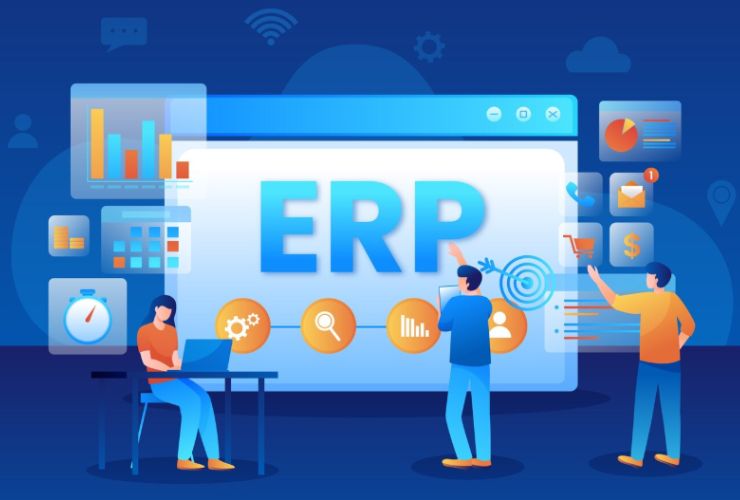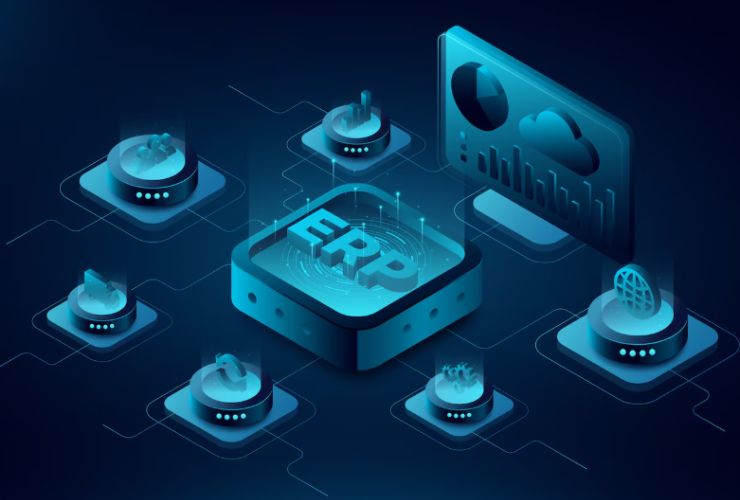With the fast-paced digital economy of the modern age, real-time and accurate decision-making is no longer a competitive advantage—it’s a necessity. Business firms are constantly struggling to respond to customer requirements, market fluctuations, and business dynamics in an agile and precise manner. Real-time decision-making founded on systems of integrated data is the key to meeting these demands. ERP integration is at the nucleus of this evolution.
What Is ERP Integration?
ERP integration is the process of tying in your central ERP system with other central business platforms such as CRM, HR, finance, inventory, eCommerce, logistics, and analytics software. This integrated architecture eliminates data silos, allowing data to freely flow in real time between systems.
Instead of isolated departments making decisions from incongruent or out-of-date information, ERP integration enables businesses to align their information at the core for a more accurate, harmonized view of their business. That translates into each department—finance and sales, procurement and support—being able to make decisions in harmony with up-to-the-minute, correct information.
Why Real-Time Decision Making Matters
Where decisions are based on stale information, inefficiencies and delays can cascade through an organisation. Businesses miss market opportunities, squander resources, and disappoint customers. Real-time insights allow teams to:
- Respond immediately to shifting markets
- Remove bottlenecks and downtime
- Identify and rectify inefficiencies in operations
- Sharpen demand forecasting and budgeting
- Deliver faster and more accurate customer service
- Be responsive to change
In this environment, ERP integration is an in-the-pants data engine that drives leaders and keeps operations in sync.
1. Combined Data for One Business View
ERP integration combines disparate data streams within a single platform. This gives decision-makers real-time dashboards of everything from financials and customer satisfaction to supply chain metrics.
Instead of having to jump between systems or rely on manually created reports, decision-makers can make sound decisions based on actual, real-time information from across the company.
2. Real-Time Insights for Better Decisions
ERP solutions with integration deliver continuous, real-time flow of information to all areas of business. It offers immediate visibility of key performance measures (KPIs) so managers and executives can respond to trends and issues as they arise—and not after the fact.
From optimizing product availability to adjusting sales tactics in real time, ERP integration makes data a strategic asset that drives forward-looking rather than backward-looking decision-making.
3. Enhanced Operational Clarity
When systems are integrated, everything in the organization is clear. Workflow progress, inventory, production scheduling, and customer orders are tracked in real time by managers.
Increased transparency makes it possible to resolve issues faster, enhance resource allocation, and increase accountability across departments. It also reduces inefficiencies and wastage, thereby increasing output and profitability.
4. Smart Forecasting and Planning
Successful forecasting depends on timely, accurate information. ERP integration enables sales, procurement, marketing, and finance data to be fed into individual forecasting models.
Whether you’re projecting seasonal demand spikes or aligning budget forecasts with business goals, real-time ERP insights keep forecasts in line. The result is more reliable planning, reduced overstocking, and better cost control.
5. Enhanced Interdepartmental Coordination
If information is siloed within separate systems, coordination is difficult to achieve, and miscommunication increases. Integration via ERP makes it such that all departments are viewing the same data at the same time, making it easier to synchronize across the organization more quickly.
Sales is able to view inventory updates in real-time, finance is able to see real-time project expenditures, and customer service is able to access real-time information on order status. This creates a seamless, coordinated process that delivers value to internal stakeholders and external customers alike.
6. Reduced Errors and Operational Risks
Manual data input, duplicate records, and inter-departmental communication breakdowns have a tendency to lead to costly errors. Real-time integration eliminates all these perils. The automated information flows eliminate human error, and validation rules ensure consistency across systems.
Secondly, real-time monitoring allows firms to detect anomalies and compliance problems before they spiral out of control—minimizing operational and cost risk.
7. Increased Customer Experience
Customers want speedy, transparent service—and ERP integration allows for it. With real-time views of order history, shipping status, and inventory levels, customer support representatives can respond with confidence and accuracy.
More importantly, combined data allows for customized customer experiences. For example, ERP and CRM integration allows businesses to personalize suggestions, deliver proactive service alerts, and forecast client needs based on purchasing history or behavior.
Final Thoughts
ERP integration is not just a back-end technology refresh—it’s a future-facing initiative that transforms how your business operates. With real-time data access, elimination of system silos, and smarter collaboration features, ERP integration empowers your teams to make faster, better decisions.
In a day and age where responsiveness, precision, and agility are paramount, ERP integration is a business-necessary investment that increases visibility, enhances productivity, and drives sustainable growth.
ERP Integration Services by Empirical Edge
We’re familiar with the task of dealing with sophisticated contemporary enterprise systems—and we’re skilled at delivering customized ERP integration solutions that automate your operations and enhance your decision-making ability.
Our ERP Integration Services Include
- Custom ERP Development & Integration: Tailor-made integrations between ERP and applications such as CRM, finance, inventory, or eCommerce.
- Data Synchronization Solutions: Live synchronization to ensure accuracy across departments.
- API & Middleware Implementation: Secure, scalable APIs and middleware solutions for smooth data exchange.
- ERP Modernization: Moving existing ERP systems to allow real-time, cloud-based decision-making.
- Consulting & Strategy: Planning strategies to align ERP integration with your specific operational and business objectives.
From design and planning to deployment and maintenance, we assist companies in developing ERP environments that cooperate—providing actionable intelligence and competitive edge.

